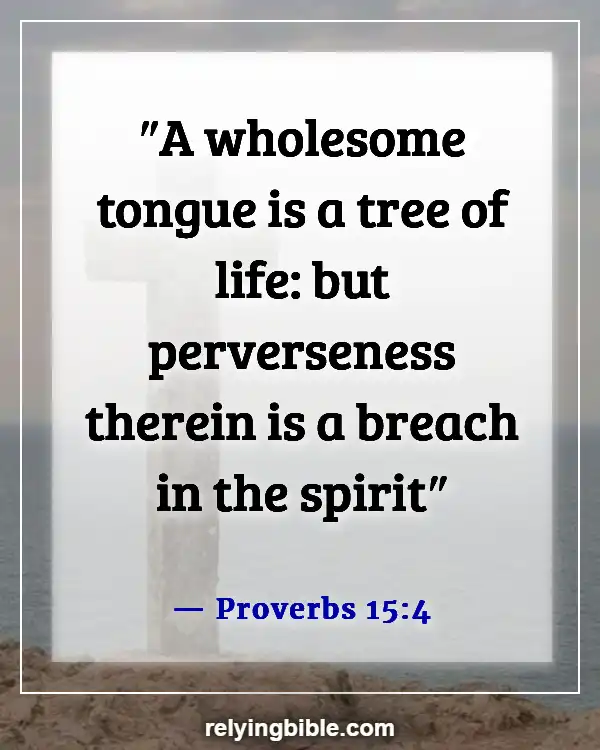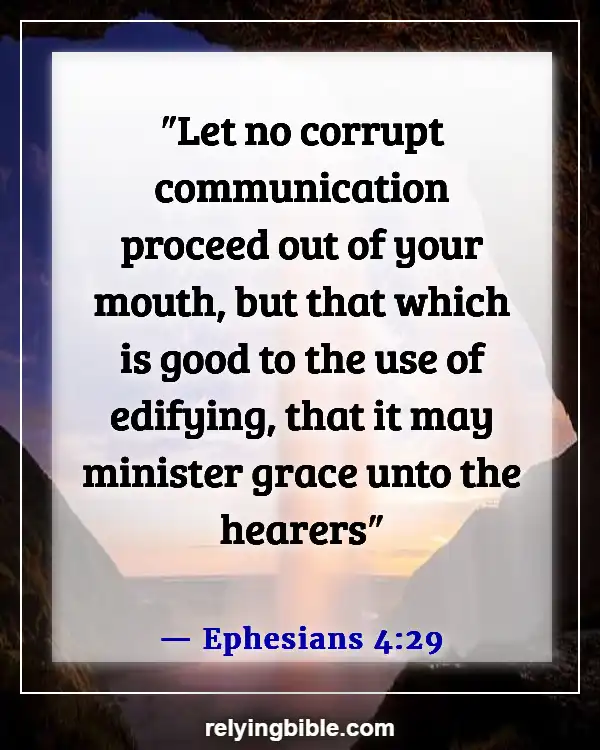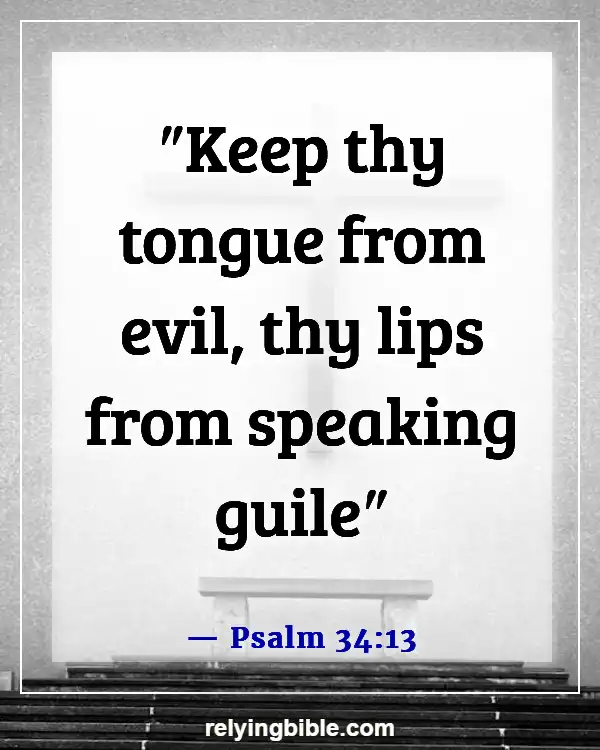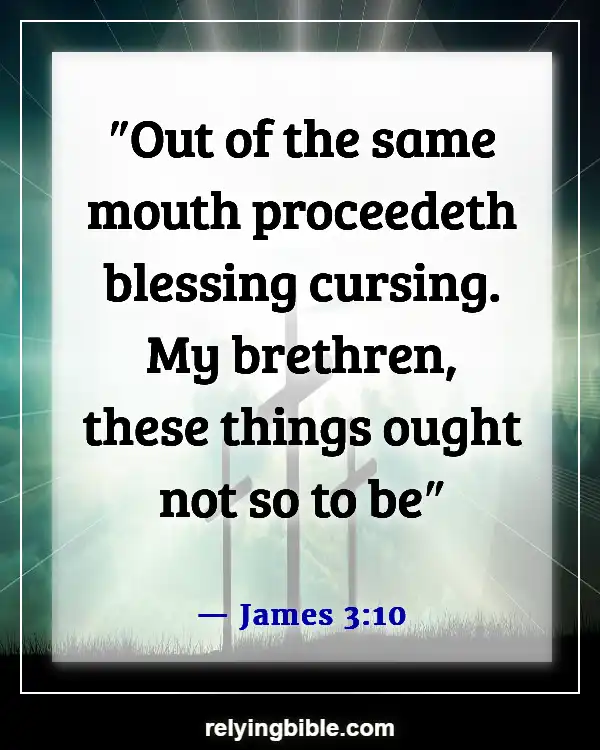Bible Verse Be Careful What You Say

Friends, if you’re searching for guidance on “Bible Verse Be Careful What You Say,” then today’s content is for you. Here, I share Bible verses that really help you better understand the importance of mindful speech according to the Bible. These scriptures offer valuable insights into the power of our words and the responsibility we have in using them wisely. Whether you’re looking to improve your communication or seeking spiritual guidance on speech, these verses will provide you with a solid biblical foundation. Let’s explore what the Word says about being cautious with our words.
Introductions
Dear friends and fellow believers, today we’ll delve into the crucial biblical lesson of being mindful of our words. The gift of speech is a blessing from God, and we must use it with great care and wisdom.
Our words possess incredible power – they can uplift or devastate, inspire or dishearten, bless or curse. As God’s children, we’re called to use our speech to honor Him and spread light in the world. Scripture teaches us that our words mirror what’s in our hearts, so we must guard our hearts vigilantly.
Consider your words as seeds you’re planting in others’ hearts. Gentle words can blossom into beautiful expressions of love and friendship, while harsh words can sprout into painful thorns of hurt and bitterness. Just as a gardener carefully selects what to plant, we must be thoughtful about the words we choose to speak.
Recall how Jesus calmed the storm with His words? That’s the true power of speech! While we may not command nature, our words can certainly soothe the turmoil in people’s lives or stir up conflict.
Think about James and John, whom Jesus nicknamed “Sons of Thunder.” They were known for their hot tempers, but through Christ’s teachings, they learned to tame their tongues and became pillars of the early church.
Let’s make a habit of speaking life-giving words. Before you speak, ask yourself: Is it true? Is it kind? Is it necessary? This simple check can help us steer clear of gossip, slander, and needless criticism.
Brothers and sisters, let’s pledge to use our words to lift each other up, to speak truth lovingly, and to praise our Creator. May our speech be filled with grace, bringing hope and healing to those around us.
If you find this message helpful, please share it with others who might benefit from this reminder. Together, we can build a community where words strengthen rather than weaken.
Bible Verse Be Careful What You Say
“The mouth of a righteous man is a well of life: but violence covereth the mouth of the wicked”— Proverbs 10:11

“In the multitude of words there wanteth not sin: but he that refraineth his lips is wise”— Proverbs 10:19
“The mouth of the just bringeth forth wisdom: but the froward tongue shall be cut outThe lips of the righteous know what is acceptable: but the mouth of the wicked speaketh frowardness”— Proverbs 10:31-32

“He that is void of wisdom despiseth his neighbour: but a man of understanding holdeth his peace”— Proverbs 11:12
“The wicked is snared by the transgression of his lips: but the just shall come out of trouble”— Proverbs 12:13

“There is that speaketh like the piercings of a sword: but the tongue of the wise is health”— Proverbs 12:18

“He that keepeth his mouth keepeth his life: but he that openeth wide his lips shall have destruction”— Proverbs 13:3

“In the mouth of the foolish is a rod of pride: but the lips of the wise shall preserve them”— Proverbs 14:3
“A soft answer turneth away wrath: but grievous words stir up angerThe tongue of the wise useth knowledge aright: but the mouth of fools poureth out foolishness”— Proverbs 15:1-2

“A wholesome tongue is a tree of life: but perverseness therein is a breach in the spirit”— Proverbs 15:4

“Pleasant words are as an honeycomb, sweet to the soul, health to the bones”— Proverbs 16:24

“He that hath knowledge spareth his words: a man of understanding is of an excellent spirit”— Proverbs 17:27

“Death life are in the power of the tongue: they that love it shall eat the fruit thereof”— Proverbs 18:21
“Whoso keepeth his mouth his tongue keepeth his soul from troubles”— Proverbs 21:23

“Where no wood is, there the fire goeth out: so where there is no talebearer, the strife ceaseth”— Proverbs 26:20

“Seest thou a man that is hasty in his words? there is more hope of a fool than of him”— Proverbs 29:20

“She openeth her mouth with wisdom; in her tongue is the law of kindness”— Proverbs 31:26
“Put away from thee a froward mouth, perverse lips put far from thee”— Proverbs 4:24
“Thou art snared with the words of thy mouth, thou art taken with the words of thy mouth”— Proverbs 6:2

“Let no corrupt communication proceed out of your mouth, but that which is good to the use of edifying, that it may minister grace unto the hearers”— Ephesians 4:29

“But I say unto you, That every idle word that men shall speak, they shall give account thereof in the day of judgment”— Matthew 12:36

“Not that which goeth into the mouth defileth a man; but that which cometh out of the mouth, this defileth a man”— Matthew 15:11

“But now ye also put off all these; anger, wrath, malice, blasphemy, filthy communication out of your mouth”— Colossians 3:8

“Let your speech be always with grace, seasoned with salt, that ye may know how ye ought to answer every man”— Colossians 4:6

“Set a watch, O Lord , before my mouth; keep the door of my lips”— Psalm 141:3

“Let the words of my mouth, the meditation of my heart, be acceptable in thy sight, O Lord , my strength, my redeemer”— Psalm 19:14

“Keep thy tongue from evil, thy lips from speaking guile”— Psalm 34:13

“Wherefore, my beloved brethren, let every man be swift to hear, slow to speak, slow to wrath”— James 1:19

“Out of the same mouth proceedeth blessing cursing. My brethren, these things ought not so to be”— James 3:10

“A good man out of the good treasure of his heart bringeth forth that which is good; an evil man out of the evil treasure of his heart bringeth forth that which is evil: for of the abundance of the heart his mouth speaketh”— Luke 6:45
“Be not rash with thy mouth, let not thine heart be hasty to utter any thing before God: for God is in heaven, thou upon earth: therefore let thy words be few”— Ecclesiastes 5:2

“To speak evil of no man, to be no brawlers, but gentle, shewing all meekness unto all men”— Titus 3:2
Conclusion
In conclusion, the wisdom of being careful with our words is a timeless lesson that holds immense value in our daily lives. This principle teaches us the power of speech and its potential to both heal and harm. By cultivating mindfulness in our communication, we can foster stronger relationships, avoid unnecessary conflicts, and create a more positive environment around us.
To apply this lesson, we should practice pausing before speaking, especially in emotionally charged situations. Reflecting on the potential impact of our words can help us choose them more wisely. Additionally, we can strive to use our speech to encourage, uplift, and support others rather than criticize or gossip. By doing so, we not only improve our own character but also contribute to a more compassionate and understanding society.
Ultimately, being mindful of our words is a lifelong journey that requires patience and self-awareness. As we continue to grow in this area, we’ll find that our relationships deepen, our conflicts diminish, and our overall quality of life improves significantly.
More Bible Topics
- Bible Verses About Working Hard For The Lord
- Bible Verse About God Is Our Refuge And Our Strength
- Bible Verses To Feel Better About Yourself
- Bible Verse God Is Our Help In Times Of Trouble
- Bible Verses To Feel Closer To God
- Bible Verses About Missing Someone You Love
- A Wife That Disrespects Her Husband Bible Verse
- Bible Verses About Why We Go Through Trials
- Inspirational Bible Verses About Love And Relationships